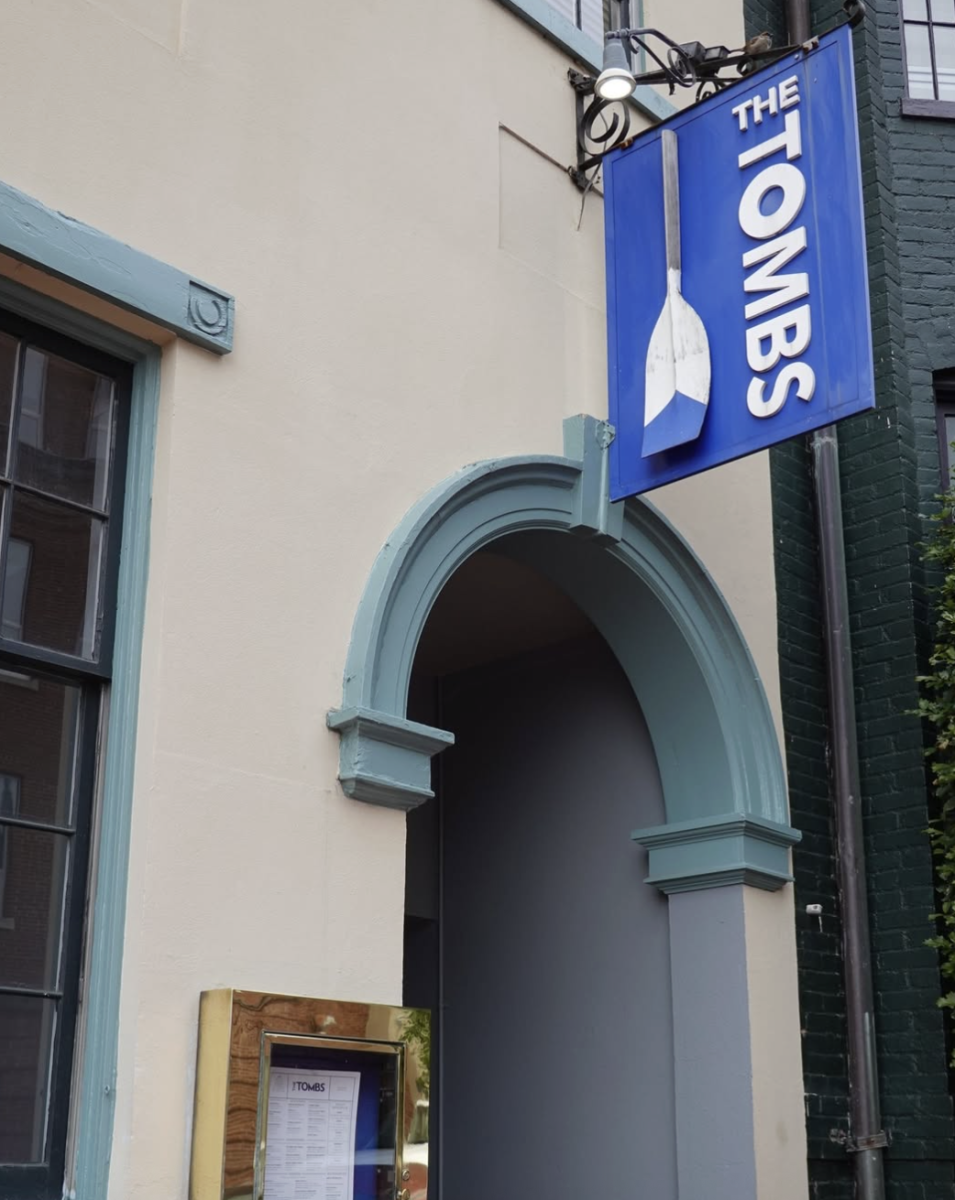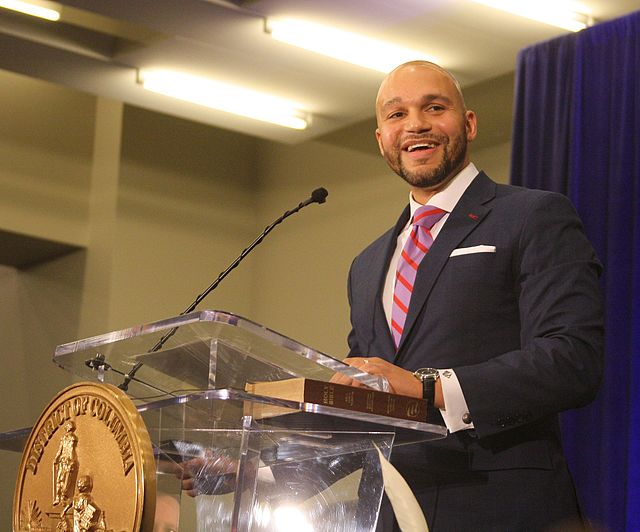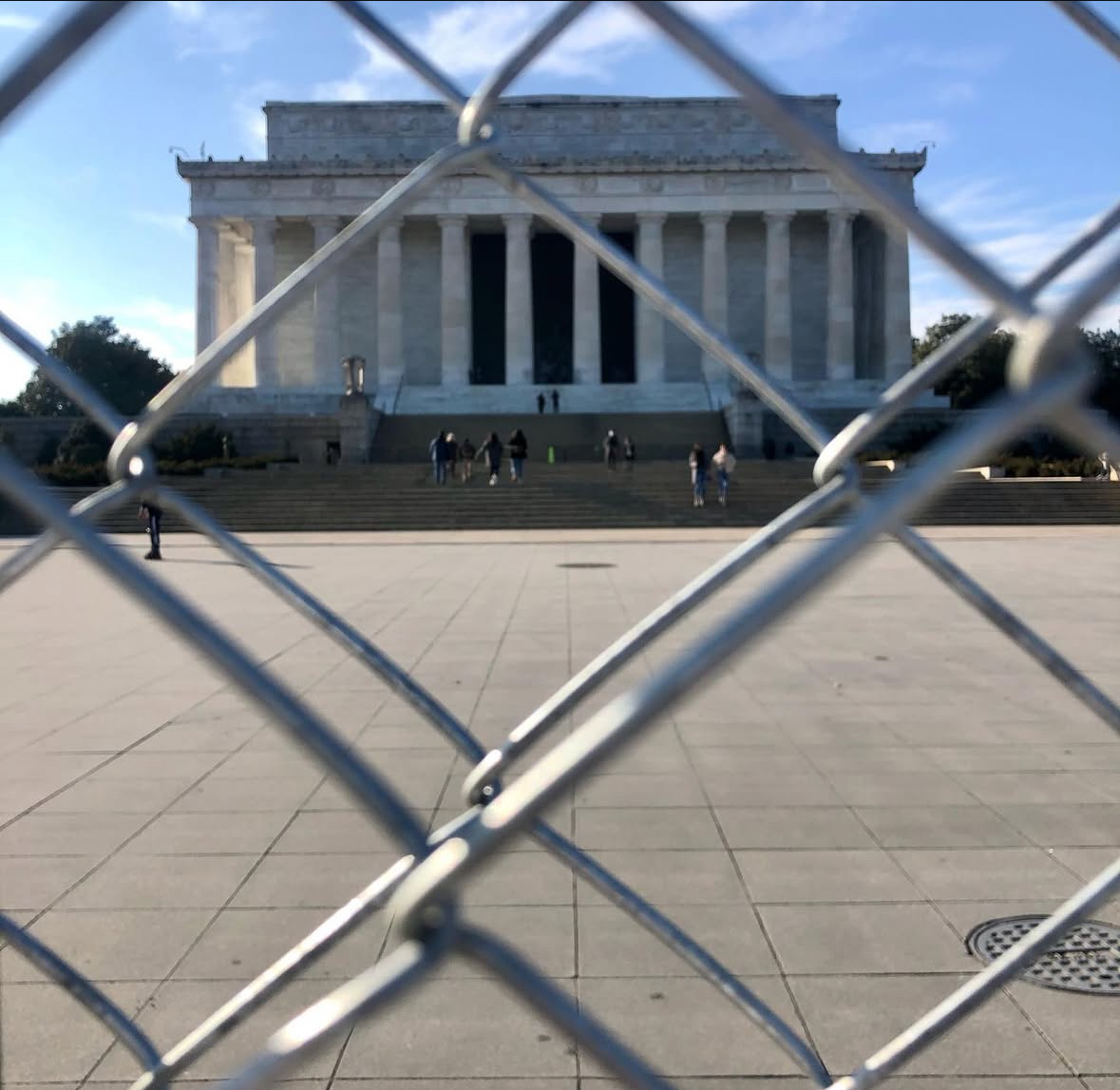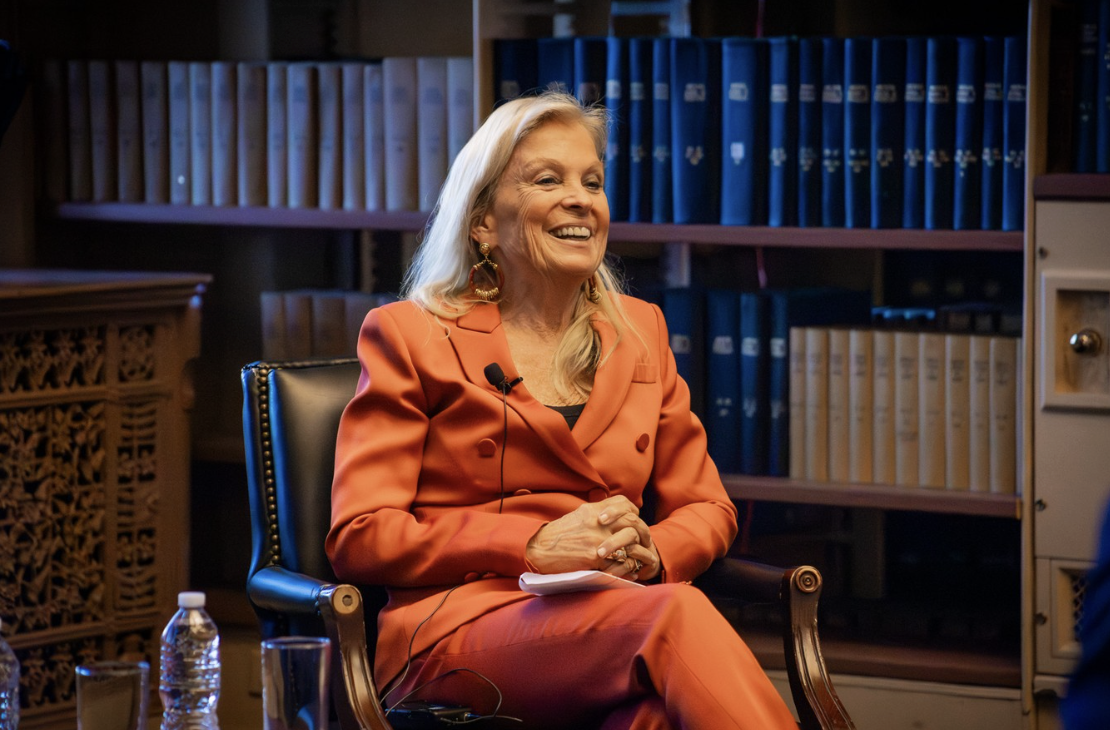Formerly detained Georgetown University post-doctoral fellow Badar Khan Suri spoke publicly about his experience in detention and called for continued advocacy at a June 3 event.
One of Khan Suri’s lawyers, Hassan Minhaj Ahmad, and Nader Hashemi, head of Georgetown University’s Alwaleed Center for Muslim-Christian Understanding (ACMCU) — where Khan Suri was a senior fellow — accompanied Khan Suri on stage at restaurant and events space Busboys and Poets. This marked the first public event in which Khan Suri has publicly spoken out about his 59-day detention, just weeks after he was released from custody of the Department of Homeland Security (DHS) in Texas on May 14 after a Virginia federal judge granted him release without bond.
Khan Suri said, despite his experience, he still believes that the American legal system can do justice.
“I still believe that this country has rule of law,” Khan Suri said at the event. “It was taken from me for some time. And because of that rule of law, because of that due process which exists, I was brought back to my community, my people.”
Khan Suri recounted his detention, which he said was a “dehumanizing time” and an “ordeal in every sense,” saying officials shackled him and would not respond to his questions.
“It was as if I’m a dead man, and only my soul was there and I was seeing them, and they cannot, they cannot see anything,” Khan Suri said.
Federal immigration officers detained Khan Suri March 17 after the U.S. Department of State revoked his visa for allegedly posting “Hamas propaganda” on social media and having connections to Hamas leadership. Khan Suri’s social media was subject to scrutiny by conservative media organization Canary Mission, though analysis by The Hoya did not find evidence that Khan Suri’s speech violated the law.
Khan Suri rejected allegations that he is a threat to U.S. foreign policy and has spread pro-Hamas and antisemitic propaganda, saying he leans on the non-violence ideologies of peace advocate Mahatma Gandhi and tried to promote these philosophies with his cellmates while in detention.
“I would always say to them, try to have control; try to learn about forgiveness; try to be minimalist; try to know about nonviolence,” Khan Suri said. “And then we would keep on talking about Gandhian ideology there all the time.”
Khan Suri was held in U.S. Immigration and Customs Enforcement (ICE) detention centers in Alexandria, La., and Alvarado, Texas, before his release and return to Virginia May 14. The Department of Justice (DOJ) is appealing the judge’s decision in an appeals court. He is one of multiple students and academics who have had their visas revoked and were subsequently detained after engaging in pro-Palestine speech, including Tufts student Rümeysa Öztürk and Columbia graduate Mahmoud Khalil.
Khan Suri said that when he was initially detained, he had no conception of his detention being tied to those of other previously detained students or to broader foreign policy and visa changes as initiated by Secretary of State Marco Rubio.
“All I was able to understand was that they are taking me for my color, for my religion and because I am married to an American citizen of Palestinian origin,” Khan Suri said.
Khan Suri said he and others in the ICE facility were malnourished and officials routinely neglected their health, leading him to lose 16 pounds over his detention. Specifically, he said he was kicked in the knee by an officer, denied meal accommodations for Ramadan fasting, underfed and kept in crowded living conditions.
Khan Suri also said he was categorized as “red,” meaning high security within the facility.
“Later, I came to know what red means. It is the highest security, most dangerous people, and when they put me again in that red security vault, I was shocked,” Khan Suri said. “I can see at least a dozen-plus people sleeping on the floor. They said, ‘How many people will you bring in? There is no space here.’ But they don’t care. They just pushed me in.”
Khan Suri also alleged that officials routinely asked for volunteers to return to their country of origin.
The DOJ held Khan Suri’s first immigration court hearing regarding his deportation order May 6 in Texas. According to Ahmad, Khan Suri successfully moved the case to an immigration court in Annandale, Va., and will contest the order in a July hearing.
According to Ahmad, Khan Suri’s lawyers have still not received the full decision by the State Department to revoke Khan Suri’s visa, which includes the three exhibits of Khan Suri’s social media activity that the State Department used to make the determination, or the full warrant for his detention.
Ahmad said Khan Suri’s legal team will continue to push the government to provide evidence of its claims.
“It’s important for the government to show its math,” Ahmad told media representatives after the event. “And we intend to hold their feet to the fire and make them prove every inch of their case.”
Ahmad said the experiences recounted by Khan Suri within the United States mirrored those he saw in asylum cases he had covered for those wishing to flee to the United States.
“Tyranny looks the same everywhere, and when I start to see things here that remind me of things I had to document from cases from my asylum seeking clients, that’s something that we need to make sure doesn’t happen,” Ahmad said during the event.
“Dr. Suri is still here on a visa,” Ahmad added. “He’s in deportation proceedings, but yet he speaks. What excuse do you and I have?”
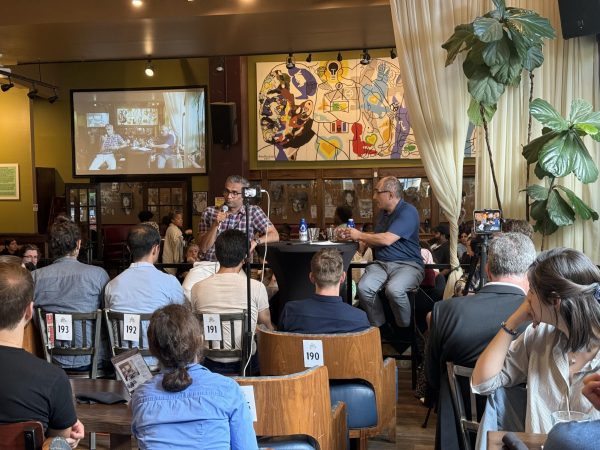
With his visa revoked, Khan Suri’s status teaching at Georgetown is uncertain in the near future. Ahmad said he and the rest of Khan Suri’s legal team are working with the university to restore his work status.
“Georgetown has been a well of support, and we are in touch with the deans; we are in touch with his bosses, with the administration, to make sure that he’s able to return to work as soon as possible,” Ahmad told The Hoya.
Khan Suri said he feels obligated as a professor and a father to continue speaking out about his experience and the ongoing conflict in Gaza.
“So there is fear, but still, I will never back down,” Khan Suri said. “I will always say, ‘Be courageous.’ I will do every part of mine to show my character and strength, and that is the reason I’m speaking on every occasion to whoever wants to hear from me, and I’ll keep on doing that.”
Khan Suri added that his support for Palestine comes from his hope to create a better future and prevent violence.
“I want this world to be a better place for Gen Z and for my children, for every child. I see in my children, every child,” Khan Suri said. “And I don’t want kids to go through what they they went through during the Holocaust, or what they are going through during this genocide in Gaza.”


